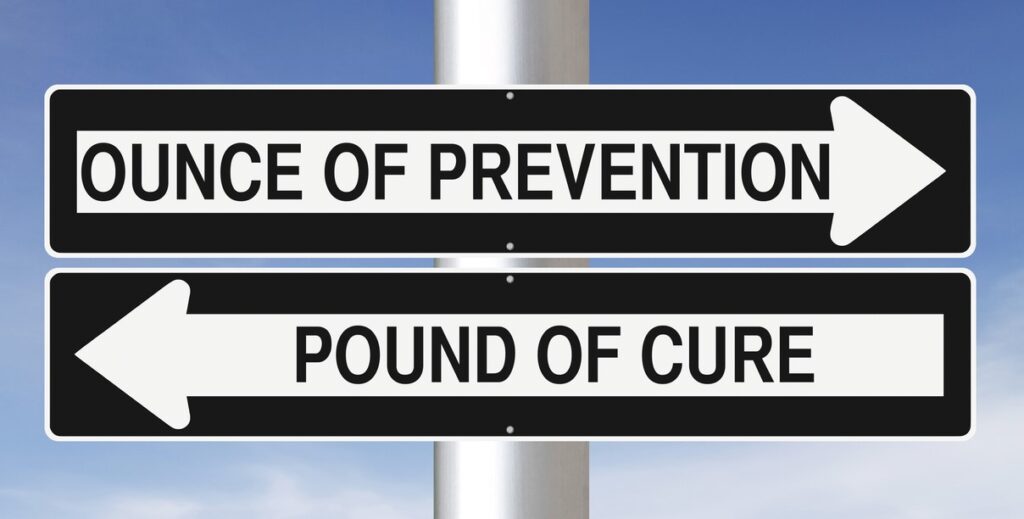Who Pays the Costs to Prevent a Loss?

When an insured incurs expenses to prevent a potential loss, a situation arises that raises equitable and traditional insurance principles versus language not found in non-marine property insurance policies. This scenario, where the insured takes proactive steps to avert a loss that the insurer would have been liable for, raises a pivotal question: Should the insured be entitled to reimbursement for these preventative expenses?
A thought-provoking analysis of this issue was presented in a law review article in the Columbia Law Review.1 The article delves into a particularly illustrative scenario, offering a comprehensive exploration of the complexities involved in such cases. Let’s examine this scenario more closely to understand the implications for both insurers and policyholders.
The article asked:
Consider a comparable situation where the insured is a homeowner with a standard fire insurance policy covering his property rather than his potential liability to others. His home was in an area unprotected by a public fire department. During the policy term, the house caught fire and the insured called a private fire department, which extinguished the blaze with a minimum of loss. Should the insurer be required to indemnify the insured for the cost of the services of the private fire department?
Historically, marine insurance policies have a “sue and labor” clause. This clause is so old that it is found in the first written Anglo-American marine insurance policy on record. Most insurance treatise writers agree that the clause grew out of the unwritten customs of the maritime trade existing long before maritime insurance was sold at Lloyds. Depending on how “full” the language of the sue and labor clause was written, all costs of prevention and preservation of property would be covered. A typical “sue and labor” clause would provide:
And in the case of any loss or misfortune it shall be lawful to the assured, their factors, servants and assigns, to sue, labour, and travel for, in and about the defense, safeguards, and recovery of the said goods and merchandises, and ship, & cargo, or any part thereof, without prejudice to this insurance; to the charges whereof we, the assurers, will contribute each one according to the rate and quantity of his sum herein assured. And it is especially declared and agreed that no acts of the insurer or insured in recovering, saving, or preserving the property insured shall be considered as a waiver, or acceptance of abandonment.
Non-marine and typical property insurance policies have been interpreted to not afford coverage for the prevention of a loss, absent policy language stating that the insurer will pay for it. This is not to be confused with the costs to preserve the property from further damage once a covered loss happens, which, so long as they are reasonable and necessary, are ordinarily paid by all property insurers.
Accordingly, in the article situation noted above, the policyholder was not reimbursed the $300 fire department bill. The policy language nowhere accepted any obligation to pay for the costs to prevent fire nor reimburse the policyholder for the costs of the fire department. The court noted that a fire policy covering “all direct loss by fire, lightning and extended coverage” did not include the cost of services.2
The factual scenarios can be close and allow coverage. In a case where the testimony proved that a fire occurred between 2 and 3 o’clock in the morning, which burned the buildings adjoining the plaintiff’s store, and that the building his insured goods were in was about to be on fire, and caught on fire, and that he moved his goods to save them from the fire. The court held that:
It was clearly the duty of the insured to remove the goods when the danger of destruction was so imminent and impending as to create a reasonable apprehension that unless he did so they would be destroyed, and the circumstances as they exist at the time must determine the necessity for removal; and if while so doing, or after such removal, any of the goods are stolen, the theft, being a consequence flowing from the peril insured against and incident thereto, is attributable to the peril itself.3
The important lesson is to carefully read the policy to determine if any costs to prevent the loss from occurring are covered. Unfortunately, for property insurance policyholders, most policies do not, or have a limited amount. Certainly, if a loss occurs, it is much easier to claim additional costs, and attempts to preserve the property from further damage are covered, as noted in A Warning to Hurricane Ian Policyholders About Loss Mitigation Versus Loss Prevention—A Sue and Labor Clause Analysis. Further, under commercial loss situations, I would suggest reading Expenses to Reduce Your Loss are Covered Under Your Business Income Coverage.
Thought For The Day
We need to stop just pulling people out of the river. We need to go upstream and find out why they’re falling in.
—Desmond Tutu
1 Note. Allocation of the Costs of Preventing an Insured Loss. Columbia Law Review, vol. 71, no. 7 (Nov. 1971), pp. 1309-28.
2 Farmers Mut. Fire Ins. Co. of Knox County v. McMillan, 395 S.W.2d 798 (Tenn. 1965).
3 Queen Ins. Co. v. Patterson Drug Co., 73 Fla. 665, 681–82, 74 So. 807, 812 (Fla. 1917).



